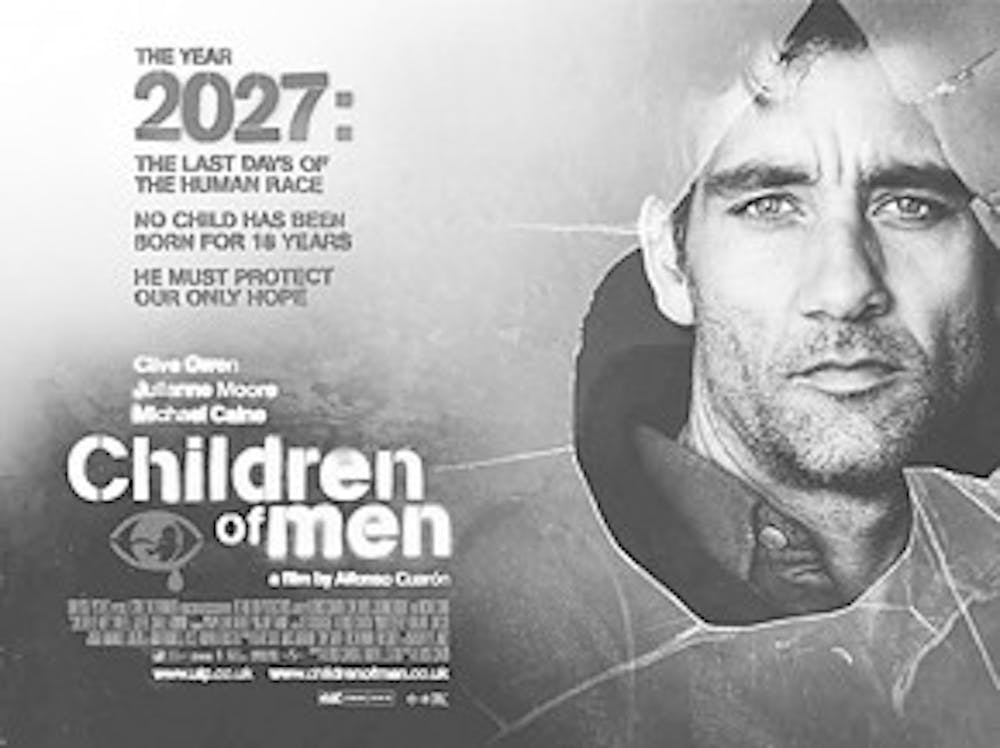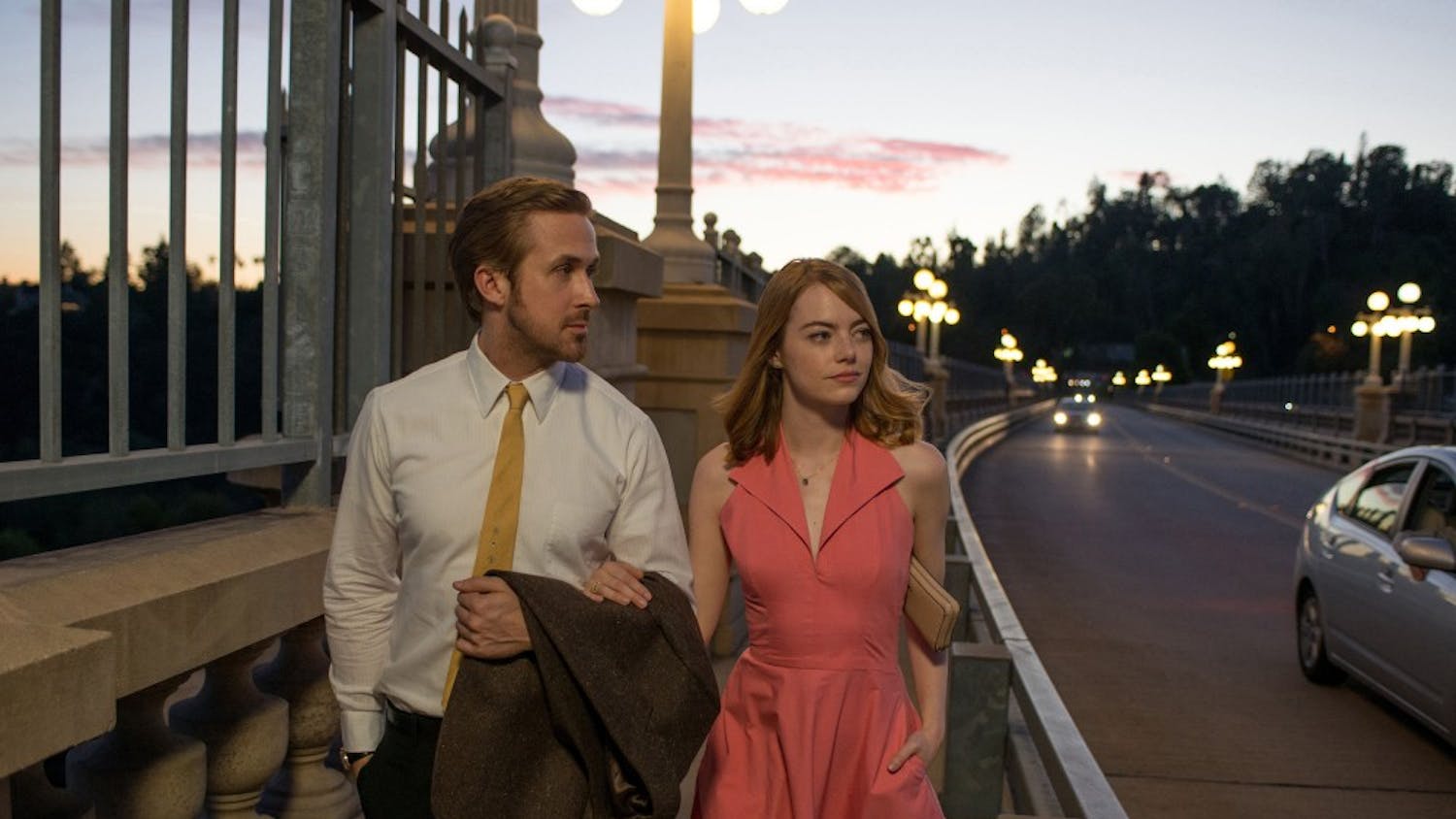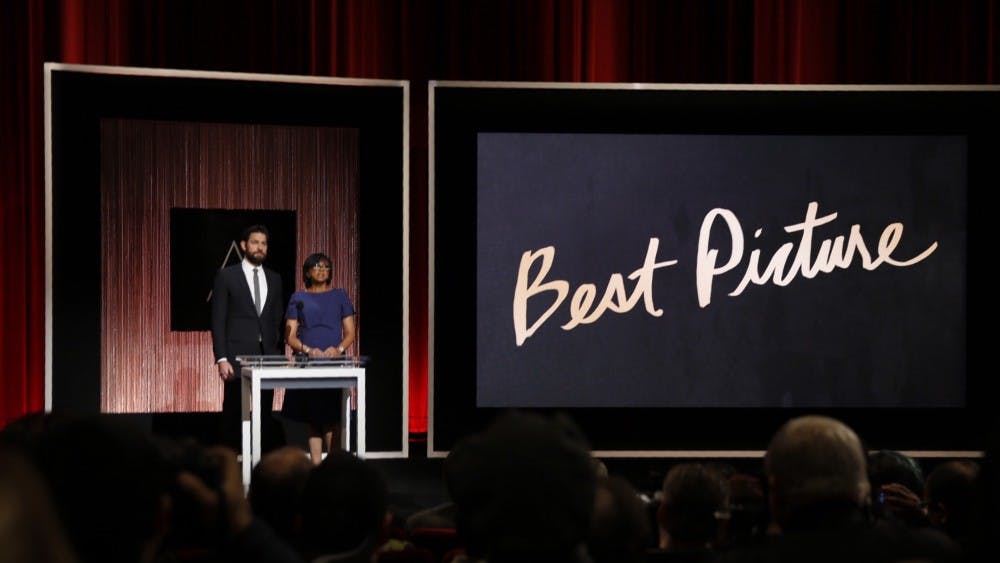It's become customary here at WEEKEND that the editor writes the final Last Word column of the semester, and it has been on my mind for a good couple months. All the possible ideas came rushing through my head: a Top 10 list of films people missed in 2006, another rant on why Hollywood should quit remaking films, even a salute to all the greats whom I wrote alongside over the years -- Alec Toombs, John Barnett, C. Warner Sills, Tony Sams and numerous others to whom I raise my glass. For a while I was even debating a column on why the massacre at Virginia Tech had nothing to do with entertainment media, which various news outlets and conservative rabblerousers are surely preparing to declare, like they did when the Columbine shootings occurred. Yet, the more I thought about all these ideas, I just kept coming back to the importance of cinema itself.\nI've said for a long time that "I'd rather be making 'em than writing about 'em." I knew after watching Federico Fellini's "8 ½" in 2002 that filmmaking was my calling. Sure, I had interest in it before, but it was Fellini's masterpiece that sealed the deal for me. When it comes to being a film critic, though, you have to take a certain approach, and it helps if you have a background in cinema appreciation. Plenty of people love watching movies, but how many of them truly consume what is before their eyes? Look at Maxim's film critic Pete Hammond -- that guy doesn't know crap about movies, gives practically everything a good grade, then has his quote smeared onto as many trailers and DVD cases as possible. I may be a film critic, but I've always learned not to trust critics, which amuses lots of people. The truth is we just offer up our own opinions. I've always felt that one should experience something for themselves, whether it's a film or an album, and have their own take on things. \nHaving been in college for four years, one can quickly figure out what the regular filmgoer considers their "favorite" movies. "Napoleon Dynamite," "Eternal Sunshine of the Spotless Mind, "Garden State" and the list goes on. Hell, I remember when I took my Intro to Film class here and half the people in class said their favorite flick was "Requiem for a Dream." I got the odd look for saying "8 ½," but I found it more odd that so many people considered their favorite film to be the one about drug addicts that doesn't really provide any sort of "entertainment value." Certainly director Darren Aronofsky could care less about that element. \nWe live in a time when people are afraid to take chances at their local cineplex or rental location. It is an age where the cinema has simply become a source for entertainment rather than something worth discussing. There is a reason why films like "Pirates of the Caribbean: Dead Man's Chest" did so well in 2006 versus the likes of "The Fountain" and "Children of Men," and that is people don't want to think while in front of the silver screen. Even already this year the highest-grossing flicks include "Ghost Rider" and "Wild Hogs," whereas "Zodiac" and "Grindhouse" tanked. \nI've been told by more than a couple people in my time that anyone who enjoys foreign films or black-and-white pictures must be a "art fag," as if opening your mind to the fact that cinema began more than a century ago and exists in places outside the United States is a bad thing. Sure, it is true that our country makes the biggest pictures that cost millions of dollars and there is nothing wrong with that. And with that kind of freedom, the only thing a director must fear is the deadly scissors of the studio. In other parts of the world, though, some of the greatest cinema was born out of conflict. Look at Marcel Carné's "Children of Paradise," made during the Nazi occupation of France, which had to be worked on in secret to prevent the crew from being arrested and possibly executed. There is a story to be told with films such as this, something that makes the film that much more valuable. \nPerhaps people fear the branding of being called "pretentious" by their peers. For them to say that they watched a film by Akira Kurosawa, Ingmar Bergman or Rainer Werner Fassbinder could mean they're one of "those people." This always amused me because it is men such as these who inspired the likes of Steven Spielberg, Martin Scorsese, Francis Ford Coppola and the rest of the New Hollywood mavericks in the 1960s and '70s to pick up their cameras and revolutionize our film industry; otherwise today sex, violence and other topics on screen would still be taboo. \nMy advice is simple: Seek out the cinema of the past and the world around you before knocking it. Everyone who watches movies is raised by what is immediately accessible to them for $8 at the local theater. You must take the first step toward discovering what you haven't experienced yet. Go get a Netflix queue and load up on DVDs from the Criterion Collection, essentially a cinematic library of all the names that made/make cinema much greater than just another image on the screen. Go borrow those indie films from that guy or gal who lives in your dorm/apartment. Go see the restored print of "Mafioso" when it opens in Indianapolis this weekend. Nobody will make you watch these kinds of films; it is something you, the potential viewer, must have the courage to seek out. It's about being able, when someone asks what kind of films you like, to honestly reply, "Everything"
The importance of cinema

Get stories like this in your inbox
Subscribe





